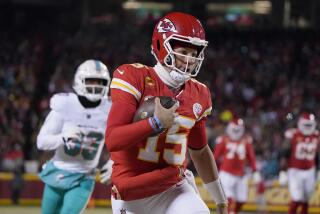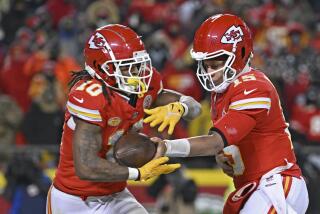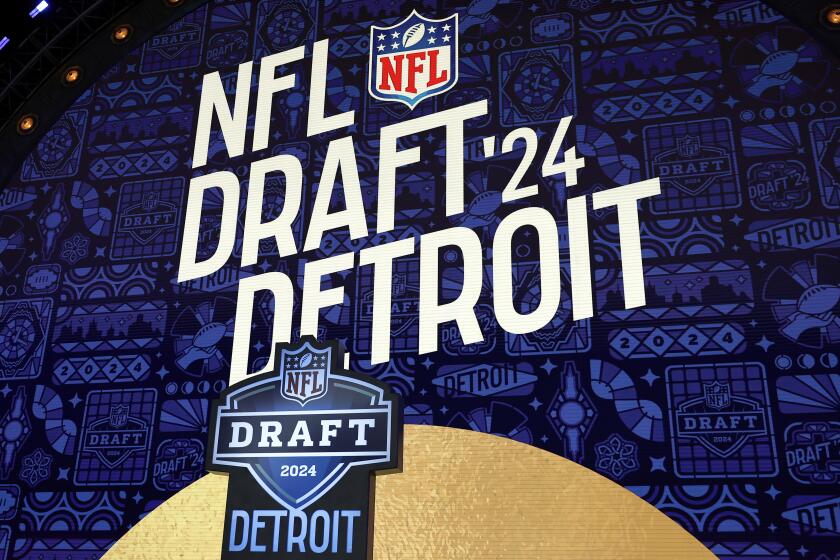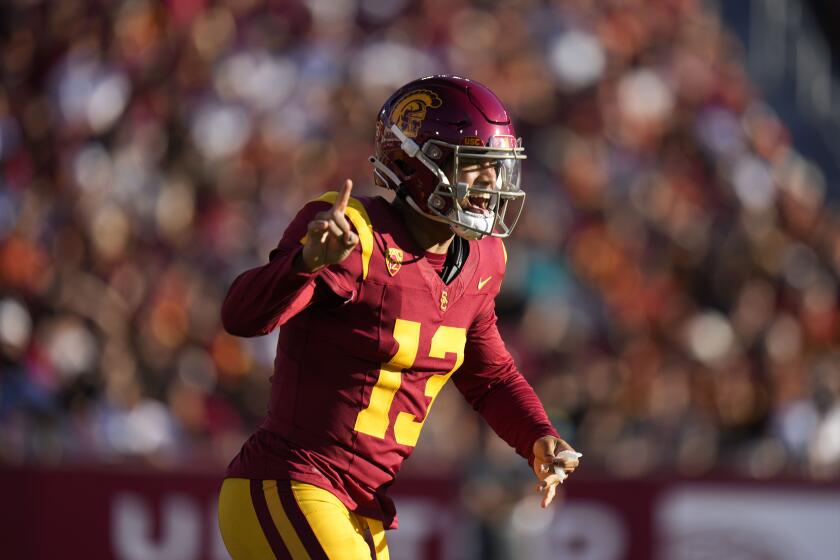NFL releases 2019 schedule after 10 weeks of computing the matchups
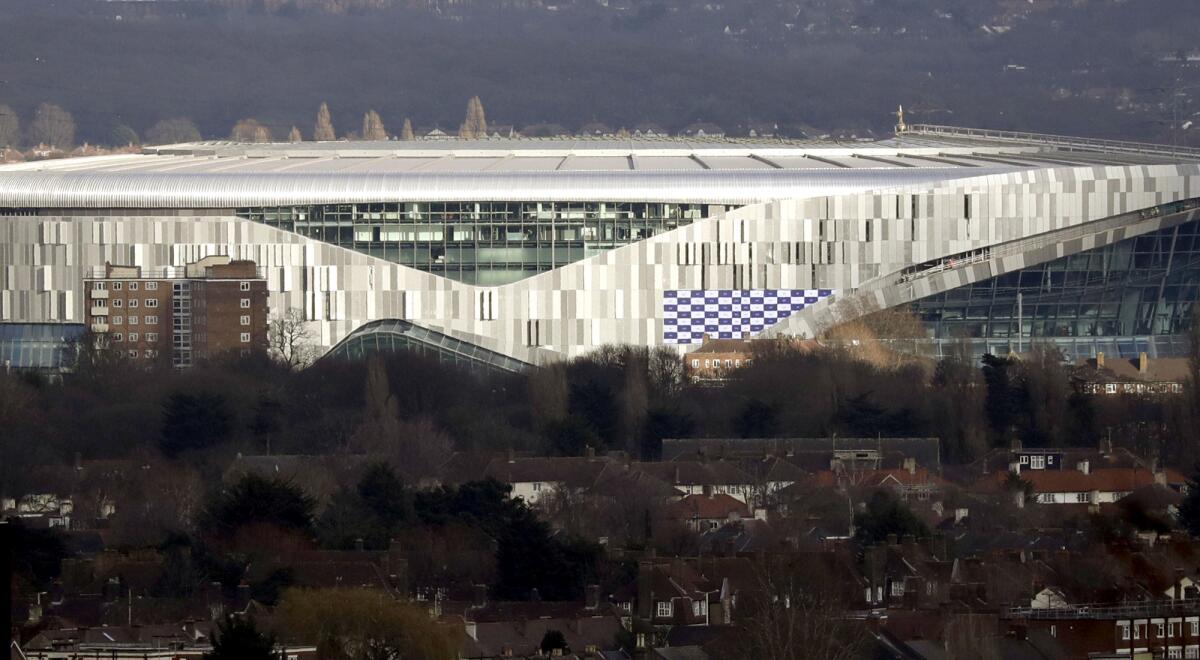
It was about 15 years ago that NFL executive Val Pinchbeck cobbled together the NFL schedule, mostly by hand. He and his team used a couple of computers to crunch the numbers, but it was largely a trial-and-error, pencil-behind-the-ear endeavor.
Pinchbeck, who died in 2004, wouldn’t recognize the schedule-making system he helped construct.
The NFL, which released its 2019 schedule Wednesday, now uses between 1,200 and 1,500 computers around the clock for 10 weeks to analyze a staggering number of potential schedules. With 256 games, 17 weeks, six time slots, five networks and four possible game days — Sunday, Monday, Thursday and Saturday — there are trillions of potential schedule combinations.
The league went from two computers, to six, to more than a thousand around the world, accessed via the cloud.
“One year we had 30, and we thought we were basically landing on the moon. ‘Oh, we’ll never need more hardware than this,’ ” said Michael North, NFL vice president of broadcasting, who works on the team run by Howard Katz, senior vice president of scheduling.
“Now, we are the perfect candidates for cloud computing. We need every single computer we can put our hands on, we need them 24 hours a day and seven days a week. But we only need them for 10 weeks. So rather than buying all of them, we go up in the cloud, we spin them up when we need them and spin them down when we’re done.”
Sign up for our daily sports newsletter »
This year, Katz and his team came up with 64,713 playable schedules — ones that came closest to conforming to all the rules and requests from teams, networks, etc. — and eyeballed each of them to find the optimal one.
“It’s a little bit like Groundhog Day,” said Charlotte Carey, senior manager of broadcast. “We come into the room every day, analyze a handful of schedules that we deemed worthy of throwing through our analyzer. And after they’re thrown through the analyzer, take a look at the things we like, the things we don’t like. The things we don’t like, we write new rules that preclude them from happening again and set them off in rerun.”
The work is done in the most secure room at NFL headquarters on Park Avenue in New York. The room has glass that’s frosted opaque, soundproof walls, encrypted computers, and can be accessed only by a special key card.
Eventually, Commissioner Roger Goodell knocks on the door and asks for the results.
Some thoughts on this year’s schedule, and particularly how it pertains to the Los Angeles teams:
For the second consecutive year, the Rams are maxed out on prime-time games — three on Sunday nights (two at the Coliseum), a Thursday night (at Seattle), and a Monday night (versus Baltimore).
::
The Chargers had only one prime-time game on last season’s schedule, but the NFL is much more bullish on them this year. They’ll play host to two “Sunday Night Football” games in Carson this fall, against Pittsburgh and Minnesota, plus their Thursday night game in Oakland and their Monday night “home” game against Kansas City in Mexico City.
::
Four “Sunday Night Football” games in Los Angeles? That’s a first. Good news for play-by-play man Al Michaels, who lives in Brentwood.
::
The league was hoping the Rams could free more dates for another Thursday night game in L.A. Didn’t work out, so they’ll play a Thursday game in Seattle. Then again, you can’t play host to a Thursday game every year, unless you’re Detroit or Dallas.
::
The Chargers have the latest possible bye, in Week 12. (Byes start in Week 4.) The NFL wants to make sure they’re all done by Thanksgiving, which is Week 13 this year.
::
A couple years ago, there were two occasions when the Rams and Chargers had simultaneous home games. The league avoided scheduling those last season, and dodged it again in this schedule.
::
The league wants to stay nimble in Week 16, when the NFL Network will broadcast a Saturday tripleheader. So there are three time slots, and five matchups under consideration. The Rams at San Francisco and the Chargers against Oakland are in that pool of five. In other words, we don’t know whether those games will be played Saturday or Sunday. The determination will be made after Week 8.
::
The Rams wanted a game in the Eastern time zone immediately before their London game to make the long trip a little easier. Wish granted; they’ll play at Atlanta before Week 8 against Cincinnati across the pond.
::
After the success of last year’s 54-51 thriller between the Rams and Kansas City, the league wanted to get back to the Coliseum for a Monday night game. So it’s Baltimore Ravens-Rams in that historic venue in Week 12. Think new Rams safety Eric Weddle will be pumped to face his former teammates?
::
Especially after the Odell Beckham Jr. trade, the Cleveland Browns are a hot ticket. The league and the networks want to have them at center stage, and especially for games in Cleveland. Four prime-time games for the Baker Mayfield-led Browns. My, how times change.
::
There’s some momentum in league circles to push the release of the schedule into May in future years, after the draft. Then, we’d know even more about the teams — where’s Kyler Murray going, for instance — and it would jazz up May for the league, which is typically a little slow. There’s pushback from teams, though, because they want to get rolling on the new year, with selling tickets, booking charter flights and hotels, and the like.
::
This being the NFL’s 100th season, the league was determined to have at least one significant, historical matchup every week. The first week is easy; the season opens with Green Bay at Chicago, and it doesn’t get more nostalgic than that. But there are also multiple Super Bowl rematches throughout the season, and Cleveland at the New York Jets in Week 2. Why is that significant? It was the first “Monday Night Football” game (although it was in Cleveland), and that TV institution is celebrating its 50th season.
Follow Sam Farmer on Twitter @LATimesfarmer
More to Read
Get our high school sports newsletter
Prep Rally is devoted to the SoCal high school sports experience, bringing you scores, stories and a behind-the-scenes look at what makes prep sports so popular.
You may occasionally receive promotional content from the Los Angeles Times.


